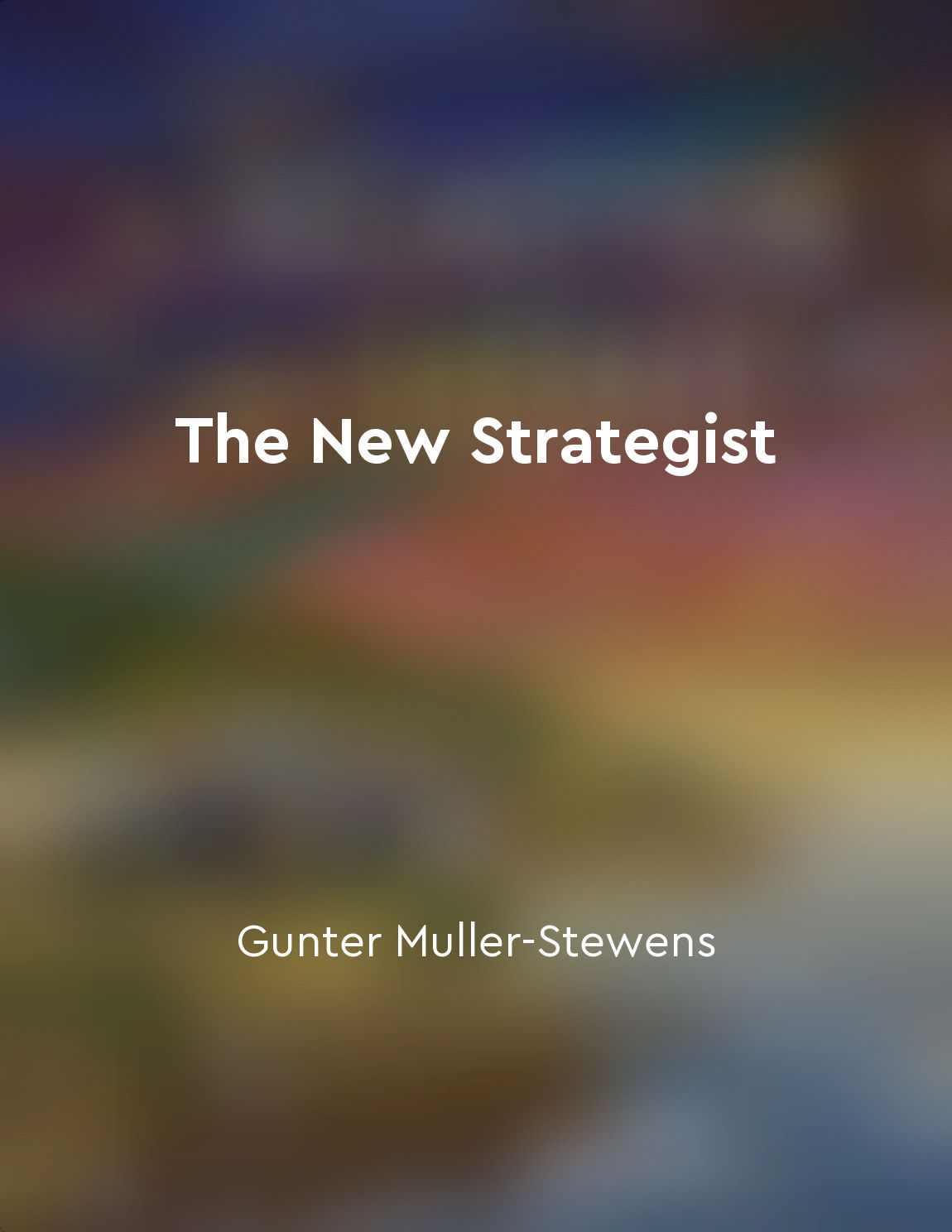Strategy is about choosing what not to do as much as what to do from "summary" of Competitive Strategy by Michael E. Porter
Choosing what not to do is just as important as deciding what to do in strategy. This concept is often overlooked, but it plays a crucial role in determining the success of a business. By focusing on what not to do, a company can avoid spreading its resources too thin and can instead concentrate on activities that align with its core competencies and offer the highest return on investment. In today's competitive business environment, companies face a myriad of opportunities and potential avenues for growth. It can be tempting to pursue every opportunity that presents itself, but this scattergun approach is often counterproductive. By trying to do everything, a company risks diluting its focus and losing sight of its strategic objectives. This is where the concept of choosing what not to do comes into play. When a company carefully selects which opportunities to pursue and which to forgo, it can streamline its operations and allocate its resources more effectively. This focused approach allows the company to excel in its chosen areas, rather than being average across multiple fronts. By making tough decisions about what not to do, a company can create a clear strategic direction that sets it apart from competitors and maximizes its chances of success. In essence, strategy is about making trade-offs. It involves making difficult decisions about where to allocate resources and which opportunities to prioritize. This requires a deep understanding of the company's strengths and weaknesses, as well as a clear vision of its long-term goals. By saying no to certain opportunities, a company can free up resources to invest in areas where it has a competitive advantage and where it can achieve sustainable growth.- Choosing what not to do is about focus and discipline. It requires a willingness to make hard choices and to stay true to the company's strategic vision. By being selective about which opportunities to pursue, a company can position itself for long-term success and avoid the pitfalls of trying to be all things to all people. In the end, the ability to say no can be just as important as the ability to say yes in the world of business strategy.
Similar Posts
Mind and body must work together for optimal results
In the pursuit of physical excellence, it is crucial to understand the intricate relationship between the mind and body. These ...
Effective execution requires alignment across all levels of an organization
To drive execution effectively, alignment across all levels of an organization is essential. This means ensuring that everyone ...

Creative vision is necessary for achieving success
In the journey towards success, one must possess a unique vision that sets them apart from the rest. This creative vision serve...

The conventional wisdom is often wrong
The conventional wisdom is a powerful force in society. It shapes our decisions, influences our beliefs, and guides our actions...

Strategy is crucial for the success of any organization
The concept of strategy is fundamental for the prosperity of any organization. Without a clear and well-defined strategy, a com...
Cultivating a strong mind is essential for conquering physical challenges
To overcome physical challenges, one must first cultivate a strong mind. This mental toughness is the foundation upon which phy...
Identify areas where you can innovate and differentiate
In order to succeed in a competitive market, it is crucial to identify areas in which your company can innovate and differentia...


